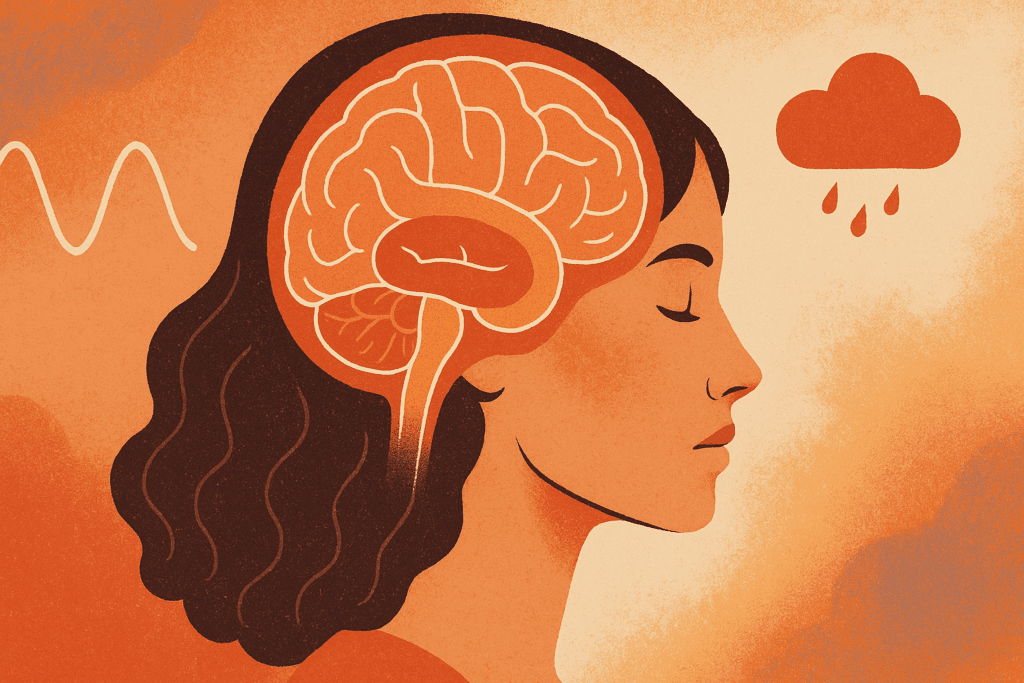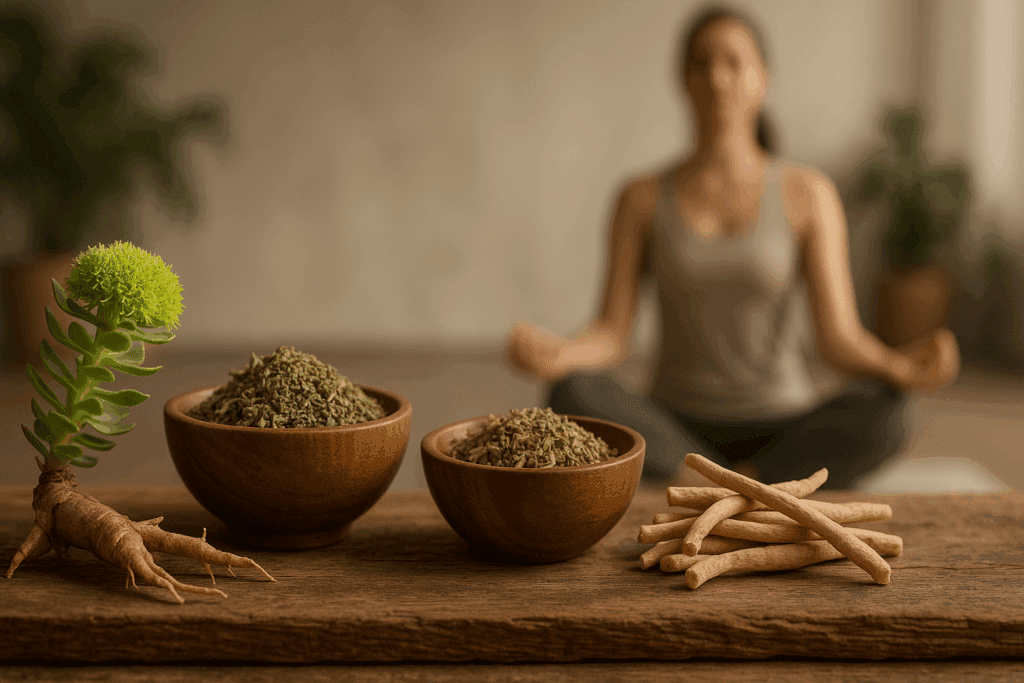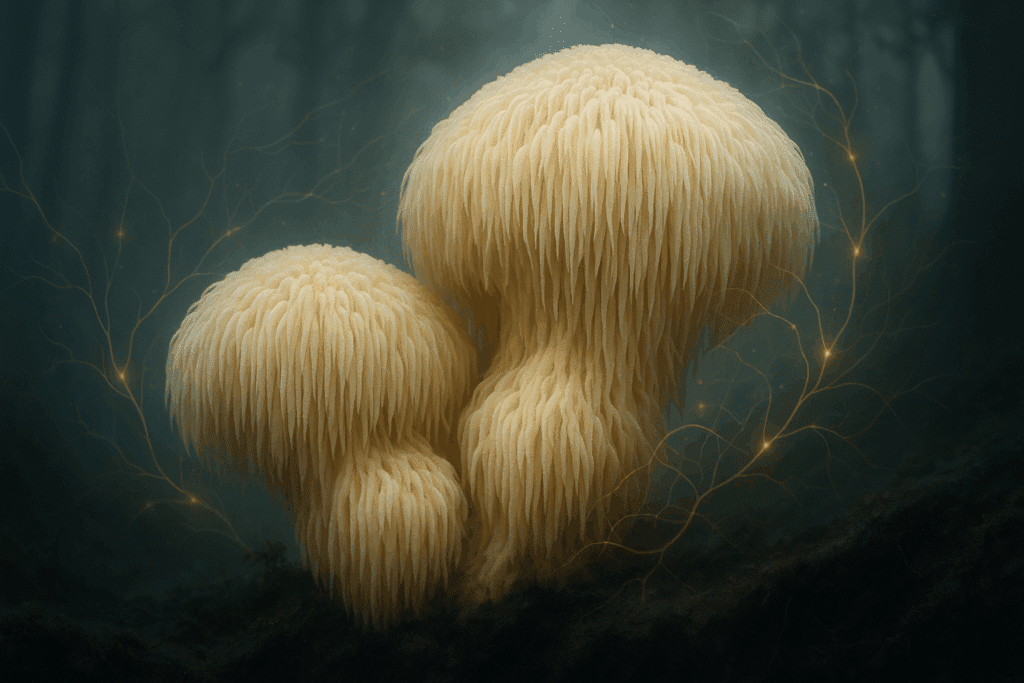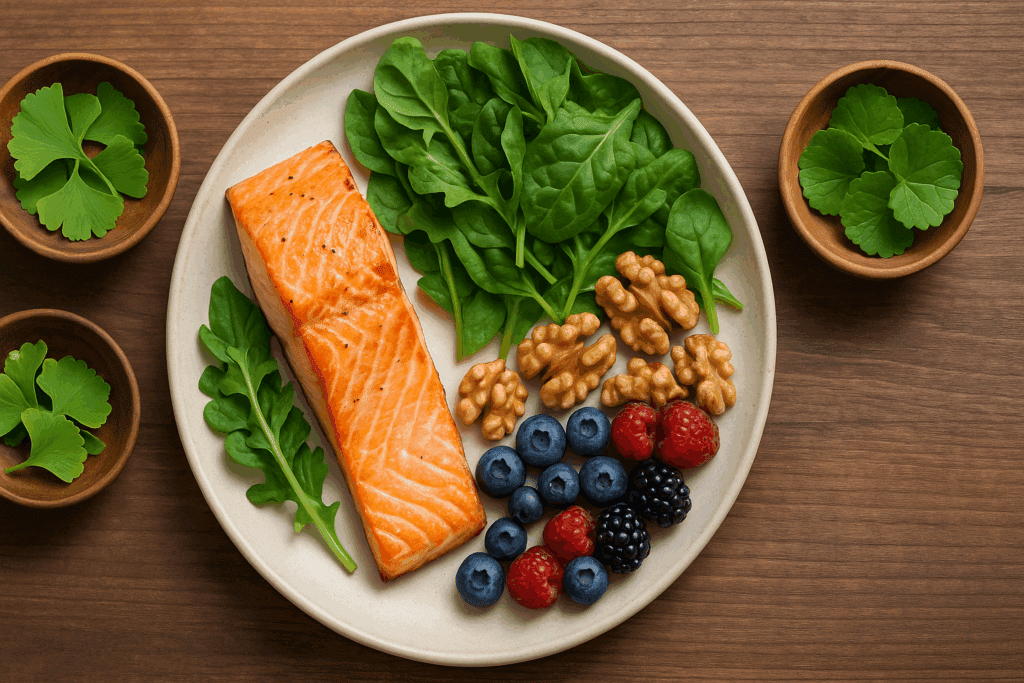Introduction: Rethinking Focus Through Natural Means
In an increasingly overstimulated world, the pursuit of attention and mental clarity has become not just a health goal but a survival mechanism. For women in particular, navigating cognitive demands often means balancing multiple roles—professional, personal, emotional—all of which tax executive functioning. While pharmaceutical interventions for Attention Deficit Hyperactivity Disorder (ADHD) have long dominated the medical landscape, an expanding body of research and experiential insight suggests that certain herbs may offer gentle, effective support for attention, mood regulation, and cognitive resilience. These plant-based alternatives are not intended to replace medical treatment but rather to complement lifestyle strategies for brain wellness. As more individuals seek holistic approaches to enhance cognitive function, many also ask deeper questions: Why is it hard for me to remember things? Why can’t I remember anything clearly during periods of stress? These common concerns underscore the need for more inclusive, evidence-based discussions around natural support for attention and memory, especially tailored to women’s unique neurobiology.
You may also like: Best Herb for ADHD Support: How Natural Remedies and Herbs for ADHD Women May Help Boost Focus and Calm
Understanding ADHD in Women: A Neurobiological Overview
Historically, ADHD has been underdiagnosed in women, partly because its presentation often deviates from the stereotypical hyperactive male model. Women are more likely to exhibit inattentiveness, emotional dysregulation, and executive dysfunction, rather than overt hyperactivity. These symptoms often intensify with hormonal fluctuations during menstruation, perimenopause, and menopause, creating a cyclical burden on working memory and mental stamina. When women ask, “Why is it hard for me to remember things?”, the answer may lie not in cognitive decline but in hormonal and neurological factors that modulate attention and memory retrieval. Memory lapses in this context are not uncommon, and addressing them requires a multi-dimensional approach, including dietary, psychological, and botanical interventions. Herbal remedies for ADHD in women may play a pivotal role in stabilizing neurotransmitter activity, modulating cortisol response, and enhancing blood flow to the brain.

The Role of Herbal Adaptogens in Focus and Attention
Adaptogens are a class of herbs known for their ability to help the body adapt to stress. Unlike stimulants that offer a short-term cognitive boost at the expense of long-term sustainability, adaptogens work by restoring balance to the hypothalamic-pituitary-adrenal (HPA) axis, thereby supporting mental endurance. Many women who experience cognitive fatigue and forgetfulness often wonder why they can’t remember anything during times of stress. This isn’t a sign of cognitive failure but rather an overextended stress response. Adaptogenic herbs like Rhodiola rosea and Ashwagandha can mitigate these effects by enhancing resilience, improving oxygen utilization in the brain, and regulating mood-related neurotransmitters like serotonin and dopamine. These properties are especially helpful for women with ADHD, where emotional lability often intertwines with cognitive symptoms.

Bacopa Monnieri: The Memory-Boosting Herb Rooted in Ayurvedic Wisdom
One of the most researched herbs for cognitive function is Bacopa monnieri, a staple of traditional Ayurvedic medicine. Its bioactive compounds, known as bacosides, have been shown to improve synaptic communication and support neuroplasticity. In clinical studies, Bacopa has demonstrated positive effects on memory consolidation, attention span, and the ability to process information—functions frequently impaired in individuals with ADHD. For women, Bacopa’s anxiolytic properties offer the added benefit of mood stabilization, which can further improve cognitive performance. The frequent complaint, “Why is it hard for me to remember things?” often reflects underlying stress or anxiety, both of which Bacopa addresses at the neurological level. Used consistently over time, Bacopa enhances both working memory and long-term retention, making it a cornerstone herb for cognitive support.

Ginkgo Biloba: Enhancing Cerebral Circulation and Focus
Another well-documented herb for brain health is Ginkgo biloba, known for its potent antioxidant properties and ability to enhance blood flow to the brain. Ginkgo supports mitochondrial function, reduces oxidative stress, and modulates neurotransmitter systems, including dopamine and norepinephrine, both of which play key roles in ADHD symptomatology. For women, improved cerebral circulation can lead to better concentration, fewer headaches, and enhanced clarity during hormonally volatile periods. The sensation of mental fog—or the feeling of “Why can’t I remember anything?” during mid-cycle or premenstrual phases—can often be traced to reduced brain oxygenation and inflammatory markers, areas where Ginkgo demonstrates therapeutic potential. Additionally, Ginkgo is often well-tolerated over the long term, making it suitable for sustained use.
Gotu Kola: The Nerve Tonic That Balances Brain and Mood
Gotu Kola (Centella asiatica) may not be as mainstream as Ginkgo or Bacopa, but it holds a special place in Eastern herbalism for its unique ability to calm the nervous system while simultaneously enhancing alertness. Rich in triterpenoids, Gotu Kola has been shown to promote dendritic branching and improve nerve transmission speed, which supports quicker information processing. This makes it particularly valuable for women experiencing ADHD symptoms like mental clutter, sensory overload, or sluggish cognition. Questions like “Why is it hard for me to remember things during emotionally intense times?” often find partial answers in the deregulated parasympathetic response—something Gotu Kola helps soothe. Moreover, its mild anxiolytic effects can ease emotional spikes, creating a clearer mental canvas for focus and retention.
Lemon Balm and Passionflower: Calming the Noise Without Sedation
Two other botanicals gaining traction for ADHD symptom relief are Lemon Balm (Melissa officinalis) and Passionflower (Passiflora incarnata). These herbs are particularly suited for women who experience heightened anxiety or emotional reactivity alongside attention challenges. Lemon Balm has been studied for its GABAergic effects, making it helpful for quieting racing thoughts and easing tension. Passionflower, similarly, acts on the GABA system while also modulating serotonin levels. Together, they provide a natural alternative to pharmaceutical anxiolytics, without causing sedation or cognitive dulling. Many women find that during emotionally turbulent periods, it becomes harder to recall even basic information—prompting reflections like “Why can’t I remember anything when I’m overwhelmed?” Lemon Balm and Passionflower work by reducing the sympathetic nervous system’s overactivation, creating an inner environment more conducive to memory encoding and attentional stability.

Lion’s Mane Mushroom: Neuroregeneration for the Distracted Mind
Among the more recent botanical discoveries for cognitive support is Lion’s Mane mushroom (Hericium erinaceus), a medicinal fungus with neuroregenerative properties. Unlike herbs that primarily modulate neurotransmitters or stress responses, Lion’s Mane promotes the synthesis of nerve growth factor (NGF), a protein essential for the maintenance and regeneration of neurons. This makes it uniquely suited for long-term support in individuals with ADHD, where structural brain differences in regions like the prefrontal cortex are often observed. For women, the hormone-sensitive nature of these brain regions means that neuroinflammation and neurodegeneration can be more pronounced during menopause or chronic stress. When the thought “Why is it hard for me to remember things even when I’m trying to focus?” arises, Lion’s Mane offers a potential botanical answer by not just treating symptoms but supporting the brain’s structural integrity.
Nutritional Synergy: How Herbs and Diet Work Together
While herbs offer powerful support, their effectiveness is amplified when paired with a nutrient-dense diet rich in omega-3 fatty acids, B-complex vitamins, magnesium, and antioxidants. A common root cause of cognitive difficulty is nutritional insufficiency, especially in women whose diets may not always meet the demands of their neurological needs. Combining herbs like Bacopa, Gotu Kola, and Ginkgo with foods that support mitochondrial function and synaptic plasticity enhances both immediate and long-term cognitive resilience. Moreover, questions such as “Why can’t I remember anything after a long day?” often find resolution in addressing blood sugar dysregulation and adrenal fatigue—both of which can be modulated through synergistic use of diet and herbs.
Lifestyle Integration: Mindful Use and Personalized Dosing
No herbal remedy exists in a vacuum. The efficacy of these plants depends not just on their pharmacological actions but on how and when they are used. Women with ADHD may benefit most from consistent, moderate doses taken in alignment with their hormonal cycles or stress levels. Timing also matters; for instance, Ginkgo is often best taken in the morning to promote alertness, while Passionflower may be better suited to evening use. Incorporating mindfulness practices, journaling, and cognitive behavioral tools can further enhance the therapeutic effects of these herbs. When integrated thoughtfully into a holistic routine, these botanicals offer more than symptomatic relief—they become tools for transformation.

Frequently Asked Questions: Best Herbs for ADHD and Women’s Focus
What makes herbal remedies a viable option for women with ADHD?
Herbal remedies are emerging as a valuable complement to conventional ADHD treatments for women, especially those who experience side effects or limited results from pharmaceutical interventions. Unlike medications that often focus on short-term symptom suppression, herbs may promote long-term neurological balance by supporting neurotransmitter regulation, stress adaptation, and hormone stability. Women’s neurochemistry often fluctuates in response to hormonal changes, which can affect attention and memory. This is one reason why many women ask, “Why is it hard for me to remember things, even when I’m calm?” Herbal remedies such as adaptogens may address the hormonal underpinnings that conventional stimulants overlook, offering a more nuanced approach to symptom management.
Can memory problems in women with ADHD be related to emotional processing?
Absolutely. Emotional regulation and working memory are deeply interconnected, particularly in women with ADHD who may internalize stress differently than men. The emotional processing centers of the brain can compete for cognitive resources, leading to memory lapses. This dynamic often prompts people to wonder, “Why can’t I remember anything after an emotionally draining day?” Techniques that soothe the emotional centers—including the use of calming herbs like Passionflower or Lemon Balm—can indirectly support memory function by reducing the mental clutter that interferes with recall. Exploring this connection opens the door to more individualized and compassionate care strategies.
Are there lifestyle factors that can interfere with the effects of herbal ADHD support?
Yes, many lifestyle habits can blunt the effectiveness of herbal support, especially in the realm of focus and memory. Inconsistent sleep, high caffeine intake, erratic eating patterns, and chronic stress can counteract the benefits of even the most potent botanicals. Women may find themselves frustrated, asking, “Why is it hard for me to remember things, even when I take supplements?” The answer often lies in the foundational elements of wellness. Without proper sleep hygiene and stress regulation, herbs are less likely to deliver their full cognitive benefits. Thus, lifestyle integration is not optional—it’s essential.
How long does it take to see results from herbs like Bacopa or Lion’s Mane?
The effects of cognitive-enhancing herbs are typically cumulative and may take several weeks to manifest fully. Bacopa monnieri, for example, requires consistent use for at least 6 to 12 weeks to show significant improvements in memory and focus. This extended timeline can cause users to question, “Why can’t I remember anything yet, even though I started herbal supplements?” The key is to remain patient and consistent while tracking subtle shifts in mental clarity and emotional balance. For some individuals, stacking Bacopa with Lion’s Mane can accelerate perceived results by supporting both neurotransmitter balance and nerve regeneration.
Do any herbs specifically support memory during hormonal changes like menopause?
Yes, certain herbs such as Ginkgo biloba and Gotu Kola are particularly effective during periods of hormonal fluctuation, which often exacerbate cognitive symptoms in women. Menopause and perimenopause are marked by declining estrogen levels that can impair memory retrieval and attention span. Many women in this stage of life report, “Why is it hard for me to remember things lately, even simple ones?” These herbs enhance cerebral blood flow and support neurotransmitter activity, helping to bridge the cognitive gap created by hormonal shifts. Used alongside hormone-supportive nutrients like vitamin E and magnesium, they offer a powerful toolkit for navigating this life transition.
Is there a connection between blood sugar balance and memory issues in ADHD?
Yes, blood sugar stability plays a crucial role in cognitive performance. Frequent blood sugar spikes and crashes can impair attention, mood, and memory, often triggering the distressing question, “Why can’t I remember anything when I skip meals?” For women with ADHD, who are already prone to executive dysfunction, even mild hypoglycemia can have outsized cognitive effects. Herbs like cinnamon, gymnema, and holy basil can support insulin sensitivity and blood sugar balance. When combined with high-protein meals and regular eating schedules, these strategies can reduce cognitive volatility and enhance the impact of other nootropic herbs.
Can certain herbal combinations enhance multitasking and executive function?
Yes, herbal stacking—the practice of combining complementary herbs—can enhance various aspects of executive function, including multitasking, prioritization, and decision-making. A blend of Rhodiola for stress resilience, Bacopa for memory, and Ginkgo for focus can offer a synergistic lift in mental stamina. These combinations are particularly helpful for women who juggle multiple roles and often ask themselves, “Why is it hard for me to remember things when I have so many responsibilities?” Multitasking inherently strains working memory, but tailored herbal protocols may ease the mental load by improving neuroplasticity and reducing mental fatigue.
How does stress chemistry impact memory and herbal effectiveness?
Chronic stress floods the brain with cortisol, a hormone that impairs the hippocampus, the brain’s memory center. In this state, even effective herbal treatments may not yield expected outcomes. Women experiencing this stress-cognition loop often wonder, “Why can’t I remember anything when I’m not even anxious anymore?” The answer lies in the lingering effects of cortisol on brain function. Adaptogens like Ashwagandha and Eleuthero can help recalibrate the stress response, making the brain more receptive to memory-boosting herbs and increasing the likelihood of sustained cognitive improvement.
Is it safe to combine herbal ADHD support with conventional medications?
While many herbs are generally safe, some can interact with medications for ADHD or other conditions. For example, Ginkgo biloba may affect blood clotting, and Bacopa can influence thyroid function or sedative levels. This becomes a relevant concern when someone says, “Why is it hard for me to remember things even while on ADHD medication and herbs?” The issue may stem from interactions that alter medication absorption or side effect profiles. A healthcare provider with experience in integrative medicine can help design a synergistic and safe plan tailored to individual needs.
What future trends are emerging in herbal support for ADHD and memory in women?
The future of herbal cognitive support lies in precision medicine and gender-specific formulations. New research is focusing on DNA-guided herbal protocols that align with an individual’s genetic blueprint, offering even more effective support for memory and attention. This could eventually answer questions like, “Why can’t I remember anything even with good habits and supplements?” by uncovering hidden genetic polymorphisms or gut-brain axis imbalances. Advances in wearable neurofeedback devices may also integrate with herbal protocols to monitor and optimize brain function in real time. The intersection of technology, personalized medicine, and herbalism represents the next frontier in cognitive wellness for women.

Conclusion: A Natural Blueprint for Cognitive Clarity and Emotional Balance
The path to improved focus and memory, especially for women navigating ADHD, is rarely linear. It involves self-awareness, experimentation, and a willingness to explore integrative strategies that honor both biology and lifestyle. The recurrent questions of “Why is it hard for me to remember things?” or “Why can’t I remember anything when I need to think clearly?” are not just frustrations—they are invitations to deeper inquiry and empowerment. Herbs like Bacopa, Ginkgo, Gotu Kola, and Lion’s Mane do not offer magic solutions, but they do offer real, measurable support when used wisely and consistently. In a world that often demands more than our brains can reasonably give, these botanicals remind us that nature, too, has its own intelligence—a gentle, adaptive rhythm that can guide us back to focus, clarity, and calm. Embracing these natural remedies with the guidance of a healthcare professional allows us to blend traditional wisdom with modern neuroscience, cultivating a sustainable and enriched approach to cognitive wellness.
Was this article helpful? Don’t let it stop with you. Share it right now with someone who needs to see it—whether it’s a friend, a colleague, or your whole network. And if staying ahead on this topic matters to you, subscribe to this publication for the most up-to-date information. You’ll get the latest insights delivered straight to you—no searching, no missing out.
Further Reading:
Balancing Focus: Ayurvedic Solutions for ADHD
Natural Relief for Symptoms: Top Herbs for ADHD Treatment and Management


